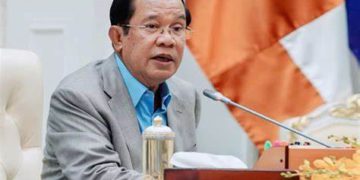HONG KONG – As part of a new national security curriculum, a controversial set of guidelines has been released for schools that include teaching students as young as six about colluding with foreign forces and subversion.
The Education Bureau’s guidelines, released late on Thursday said “National security is of great importance. Teachers should not treat it as if it is a controversial issue for discussion as usual.”
Teachers should “clearly point out that safeguarding national security is the responsibility of all nationals and that as far as national security is concerned, there is no room for debate or compromise.”
Children in primary schools will be taught to sing and respect the national anthem, learn about police and the People’s Liberation Army as protectors of Hong Kong, as well as about the four main offences in the security law, including terrorism and secessionism. In secondary schools, pupils will learn what constitutes the four main offences, which can carry sentences of up to life in prison.
An educational cartoon video released by the government shows an owl sporting glasses and a graduation hat explaining Hong Kong’s institutional architecture, its duties to the central government in Beijing and the national security law.
At one point the video says “national security affairs are of utmost importance to the whole country,” while showing smiling faces of a student, a chef and an engineer.
After the 2019 protests in which many of the demonstrators were teenagers, Chinese leaders turned to re-education in an effort to tame the city’s youth and make them loyal to China.
Schools are encouraged to “organise various game activities, such as puppet theatre, board games, creating picture books … to establish a good atmosphere and improve students’ understanding of national security,” the guidelines say.
The bureau said international and private schools have different curricula, but said they had a “responsibility to help their students (regardless of their ethnicity and nationality) acquire a correct and objective understanding and apprehension of the concept of national security.”
Schools should also stop students and teachers from participating in activities deemed as political, such as singing certain songs or shouting slogans. Teachers and principals are required to inspect notice-boards and remove books that endanger national security from libraries.
The bureau said national security education will become part of a range of subjects, including geography and biology, so as to enhance students’ sense of national identity.
Some legal scholars have said the law’s language is broad and vague, and the range of activities authorities might see as potential threats to national security was unclear and fluid.















































